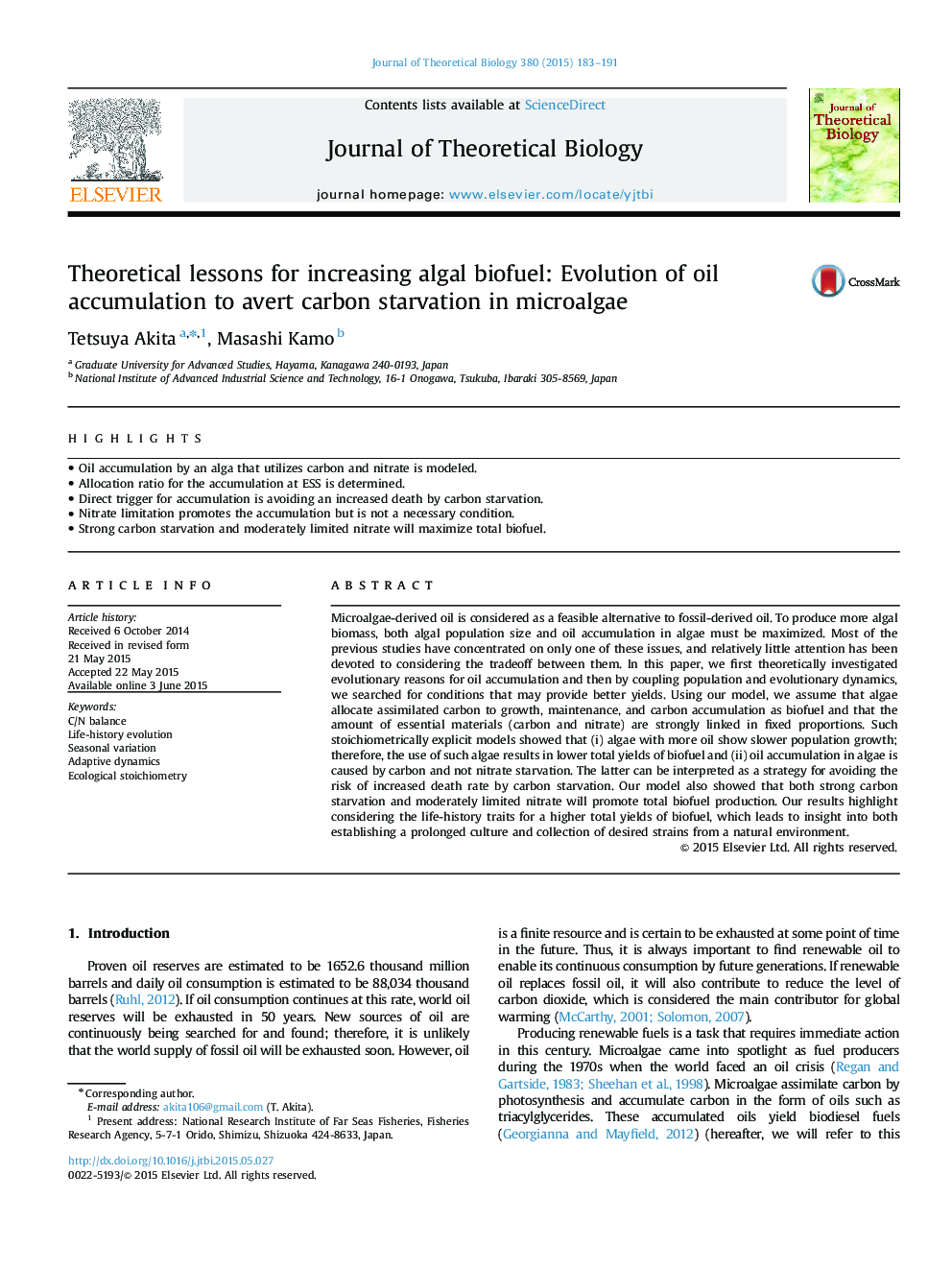| Article ID | Journal | Published Year | Pages | File Type |
|---|---|---|---|---|
| 6369615 | Journal of Theoretical Biology | 2015 | 9 Pages |
Abstract
Microalgae-derived oil is considered as a feasible alternative to fossil-derived oil. To produce more algal biomass, both algal population size and oil accumulation in algae must be maximized. Most of the previous studies have concentrated on only one of these issues, and relatively little attention has been devoted to considering the tradeoff between them. In this paper, we first theoretically investigated evolutionary reasons for oil accumulation and then by coupling population and evolutionary dynamics, we searched for conditions that may provide better yields. Using our model, we assume that algae allocate assimilated carbon to growth, maintenance, and carbon accumulation as biofuel and that the amount of essential materials (carbon and nitrate) are strongly linked in fixed proportions. Such stoichiometrically explicit models showed that (i) algae with more oil show slower population growth; therefore, the use of such algae results in lower total yields of biofuel and (ii) oil accumulation in algae is caused by carbon and not nitrate starvation. The latter can be interpreted as a strategy for avoiding the risk of increased death rate by carbon starvation. Our model also showed that both strong carbon starvation and moderately limited nitrate will promote total biofuel production. Our results highlight considering the life-history traits for a higher total yields of biofuel, which leads to insight into both establishing a prolonged culture and collection of desired strains from a natural environment.
Related Topics
Life Sciences
Agricultural and Biological Sciences
Agricultural and Biological Sciences (General)
Authors
Tetsuya Akita, Masashi Kamo,
